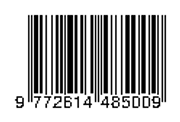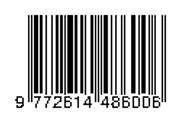DESIGN AND IMPLEMENTATION OF PERSONNEL TRACKING AND COMBAT VEHICLE BASED ON MICROCONTROLLERS
DOI:
https://doi.org/10.26905/jeemecs.v3i1.3923Keywords:
GPS, Compass Sensor, Balance Sensor, Map.Abstract
Abstract - Training is a necessity to achieve a level of professionalism in carrying out the main tasks of the Indonesian National Army (TNI) to safeguard the Sovereign State of the Republic of Indonesia (NKRI). With the development of technology, the flow of information that is well ordered, fast and interconnected is very important in a command control function that is packaged into a battle management. This study aims to create a system that can provide information support to the Unit Commander in giving command instructions to his troops. The information includes coordinates, altitude, balance, speed and compass, and is integrated with LCO (Lambert Conical Orthomophic) Map which can be integrated into Google Satellites so that tracking and monitoring of troops will be easier. Based on the results of tests that have been carried out it can be analyzed that the value of the error presentation of the actual measurements with measurements on the program is not too large. The comparison obtained is less than 2% so that by using the system it is expected that each unit can operate optimally and efficiently.
Â
Â
Downloads
References
M. Ismail, J. P. Hapsari, and S. A. D. Prasetyowati, “Aplikasi Mobile Untuk Pencegahan Pencurian Kendaraan Menggunakan Protokol IEEE 802.11,†Setrum Sist. Kendali-Tenaga-elektronika-telekomunikasi-komputer, vol. 7, no. 1, pp. 117–126, 2018.
R. Arifuddin, D. R. Santoso, and O. Setyawati, “Pengembangan Sistem Akuisisi Data Nirkabel untuk Pengukuran Distribusi Suhu Bawah Permukaan,†J. EECCIS, vol. 9, no. 2, pp. 123–129, 2016.
N. K. Staal, S. R. Sentinuwo, and A. M. Sambul, “Rancang Bangun Aplikasi Pemantauan Trafik Lalu Lintas Menggunakan GPS Smartphone,†J. Tek. Inform., vol. 13, no. 1, 2018.
B. Bahar and A. Hanafi, “Sistem Keamanan Kendaraan Bermotor Menggunakan GPS Berbasis SMS Gateway,†Jutisi J. Ilm. Tek. Inform. dan Sist. Inf., vol. 6, no. 3, pp. 1647–1654, 2018.
M. A. Indrajaya, A. Affandi, and I. Pratomo, “PERANCANGAN AUTOMATIC VEHICLE LOCATION TRACKING SYSTEM BERBASIS WEB MAPPING MENGGUNAKAN GPS DAN GIS PADA KENDARAAN ANGKUTAN UMUM,†in Prosiding SENTRA (Seminar Teknologi dan Rekayasa), 2018, no. 1.
B. Beny, J. Budiman, and A. Nugroho, “Implementasi Geofencing Pada Aplikasi Layanan Pemantau Anak Berbasis Lokasi,†in Prosiding 2nd Seminar Nasional IPTEK Terapan (SENIT) 2017, 2017, vol. 2, no. 1, pp. 63–66.
D. Supriyanti, R. Sari, and N. G. Amir, “Google Map Untuk Kepentingan Transportasi Berbasis Aplikasi,†J. Sensi, vol. 4, no. 1, pp. 64–76, 2018.
A. Sedayu, E. Yuniarti, and E. Sanjaya, “Rancang Bangun Home Automation Berbasis Raspberry Pi 3 Model B dengan Interface Aprlikasi Media Sosial Telegram sebagai Kendali,†Al-Fiziya J. Mater. Sci. Geophys. Instrum. Theor. Phys., vol. 1, no. 2, pp. 42–47, 2018.
P. D. P. Adi and R. Arifuddin, “Design Of Tsunami Detector Based Sort Message Service Using Arduino and SIM900A to GSM/GPRS Module,†JEEMECS (Journal Electr. Eng. Mechatron. Comput. Sci., vol. 1, no. 1, pp. 1–4, 2018.
A. A. Utama, A. Rabi, and Y. Novianto, “Aplikasi Pengkonversi Koordinat Universal Transverse Mercator (UTM) dalam Operasi Tempur Menggunakan Metode Regresi Linier,†Ina. Indones. J. Electr. Eletronics Eng., vol. 1, no. 2, pp. 19–24, 2018.
Downloads
Published
Issue
Section
License
Our ethic statements are based on COPE’s Best Practice Guidelines for Journal Editors.
Publication decisions
The editor is responsible for deciding which of the articles submitted to the journal should be published.
The editor may be guided by the policies of the journal's editorial board and constrained by such legal requirements as shall then be in force regarding libel, copyright infringement and plagiarism. The editor may confer with other editors or reviewers in making this decision.
Fair play
An editor at any time evaluate manuscripts for their intellectual content without regard to race, gender, sexual orientation, religious belief, ethnic origin, citizenship, or political philosophy of the authors.
Confidentiality
The editor and any editorial staff must not disclose any information about a submitted manuscript to anyone other than the corresponding author, reviewers, potential reviewers, other editorial advisers, and the publisher, as appropriate.
Disclosure and conflicts of interest
Unpublished materials disclosed in a submitted manuscript must not be used in an editor's own research without the express written consent of the author.
Duties of Reviewers
Contribution to Editorial Decisions
Peer review assists the editor in making editorial decisions and through the editorial communications with the author may also assist the author in improving the paper.
Promptness
Any selected referee who feels unqualified to review the research reported in a manuscript or knows that its prompt review will be impossible should notify the editor and excuse himself from the review process.
Confidentiality
Any manuscripts received for review must be treated as confidential documents. They must not be shown to or discussed with others except as authorized by the editor.
Standards of Objectivity
Reviews should be conducted objectively. Personal criticism of the author is inappropriate. Referees should express their views clearly with supporting arguments.
Acknowledgement of Sources
Reviewers should identify relevant published work that has not been cited by the authors. Any statement that an observation, derivation, or argument had been previously reported should be accompanied by the relevant citation. A reviewer should also call to the editor's attention any substantial similarity or overlap between the manuscript under consideration and any other published paper of which they have personal knowledge.
Disclosure and Conflict of Interest
Privileged information or ideas obtained through peer review must be kept confidential and not used for personal advantage. Reviewers should not consider manuscripts in which they have conflicts of interest resulting from competitive, collaborative, or other relationships or connections with any of the authors, companies, or institutions connected to the papers.
Duties of Authors
Reporting standards
Authors of reports of original research should present an accurate account of the work performed as well as an objective discussion of its significance. Underlying data should be represented accurately in the paper. A paper should contain sufficient detail and references to permit others to replicate the work. Fraudulent or knowingly inaccurate statements constitute unethical behavior and are unacceptable.
Originality and Plagiarism
The authors should ensure that they have written entirely original works, and if the authors have used the work and/or words of others that this has been appropriately cited or quoted.
Multiple, Redundant or Concurrent Publication
An author should not in general publish manuscripts describing essentially the same research in more than one journal or primary publication. Submitting the same manuscript to more than one journal concurrently constitutes unethical publishing behaviour and is unacceptable.
Acknowledgement of Sources
Proper acknowledgment of the work of others must always be given. Authors should cite publications that have been influential in determining the nature of the reported work.
Authorship of the Paper
Authorship should be limited to those who have made a significant contribution to the conception, design, execution, or interpretation of the reported study. All those who have made significant contributions should be listed as co-authors. Where there are others who have participated in certain substantive aspects of the research project, they should be acknowledged or listed as contributors.
The corresponding author should ensure that all appropriate co-authors and no inappropriate co-authors are included on the paper, and that all co-authors have seen and approved the final version of the paper and have agreed to its submission for publication.
Disclosure and Conflicts of Interest
All authors should disclose in their manuscript any financial or other substantive conflict of interest that might be construed to influence the results or interpretation of their manuscript. All sources of financial support for the project should be disclosed.
Fundamental errors in published works
When an author discovers a significant error or inaccuracy in his/her own published work, it is the author’s obligation to promptly notify the journal editor or publisher and cooperate with the editor to retract or correct the paper.











